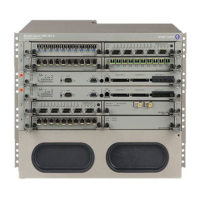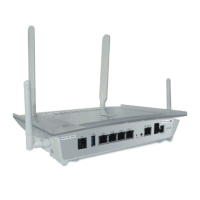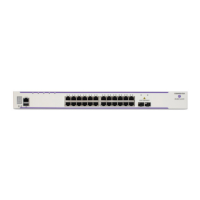Page 66 7750 SR OS Services Guide
Mobile Radio Access Network (RAN)
The RAN represents a limited portion of the carrier network. However, it is estimated that there
are more than 2 million base stations deployed worldwide and it is anticipated that these numbers
will grow to meet the imminent demand in mobile services. Carriers are experiencing rapid
demand for use of high-bandwidth mobile broadband services. This demand is creating pressure
on the utility of T1/E1 leased lines for backhauling voice and data traffic to switching centers. This
infrastructure may quickly become unable to scale with the traffic growth. Consequently, any
mobile network evolution has to consider ongoing support of existing RAN equipment as well as
the next-generation, all IP solutions.
The challenge for carriers is to bridge the gap between current 2G, 2.5G and 3G networks and the
promise of tomorrows 4G/AIPN (all IP network) solutions.
Business challenges include:
• Cost & revenue
• Define supported services
• Interworking multiple technologies
• CDMA2000
•GSM
•WCDMA
• WiMAX (802.16e)
• Leverage installed base
Deployment challenges include:
• Increase bandwidth, reliability & provide service assurance
• Accommodate various transport media & operation of co-located base-stations
• Adapt to variable migration requirements ñ technology roaming
Alcatel-Lucent mobile backhaul solutions address these fundamental requirements through a
comprehensive IP transformation architecture, which provides mobile operators with an evolution
path to all-IP, regardless of the type of network they deploy. As shown in Figure 16, this solution is
based on building blocks that can meet a variety of operator strategies.
